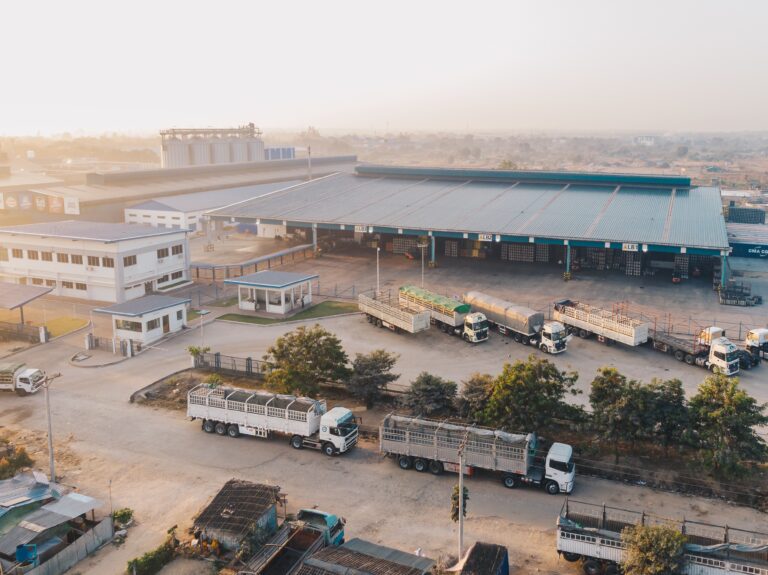Administrators are professionals who handle admin roles and responsibilities. They ensure smooth operation of an organization. Admin duties include managing office operations, coordinating resources, and facilitating team communication. By overseeing essential processes, administrators help maintain efficiency and productivity across various sectors.
The significance of admin roles and responsibilities extends to multiple industries, such as office management, operations, HR, IT, healthcare, and education. In these fields, administrators organize workflows, maintain records, and provide support to staff and clients, making them vital to an organization’s success.
By 2026, the demand for skilled administrators is expected to rise significantly. As businesses expand and adapt, effective admin roles and responsibilities will become even more crucial, reinforcing their importance in a dynamic workforce.
Let’s explore various roles and responsibilities of administrators in 2026. We’ll discuss different types of admin jobs, essential skills, salaries, and career paths with real-world insights and job-ready tips.
Who is an Administrator (or Admin)?
An administrator is a person responsible for overseeing and managing various organizational functions within a company or institution. Their primary roles often include coordinating activities, maintaining records, facilitating communication, and ensuring that operations run smoothly.
Administrators can be found in various sectors, including offices, healthcare facilities, educational institutions, and governmental agencies. They handle administrative tasks such as scheduling, budgeting, human resources management, and project coordination.
Essentially, administrators help create an efficient work environment by supporting both staff and leadership in achieving organizational goals. Their contributions are crucial for the success and effectiveness of any organization.
What does an Administrator Do? [Roles and Responsibilities]
Administrators play a crucial role in keeping an organization running smoothly. Their responsibilities can be divided into daily operational tasks and long-term organizational duties. Below, we break down the daily duties of a general administrator in detail.
Daily Duties of a General Administrator
Managing Correspondence (Emails, Phone Calls, Visitors)
- Email Communication: Sorting, prioritizing, and responding to emails on behalf of teams or executives.
- Phone Handling: Answering, screening, and directing calls to the appropriate personnel.
- Visitor Management: Greeting guests, managing sign-ins, and coordinating with staff for appointments.
Organizing Files and Records
- Maintaining both digital and physical filing systems for easy retrieval.
- Ensuring documents are properly labeled, stored, and archived as needed.
- Handling confidential information with discretion and compliance with data protection policies.
Handling Scheduling and Logistics
- Coordinating appointments, meetings, and travel arrangements for staff.
- Managing conference room bookings and resolving scheduling conflicts.
- Overseeing office supplies and ensuring necessary materials are stocked.
Coordinating Meetings and Taking Minutes
- Sending out meeting invites, agendas, and reminders to participants.
- Setting up meeting rooms with required equipment (projectors, video calls, etc.).
- Recording meeting minutes, summarizing key points, and distributing follow-up action items.
Processing Invoices and Purchase Orders
- Verifying and processing vendor invoices for payment.
- Tracking expenses and ensuring they align with budgets.
- Assisting with procurement by raising purchase orders (POs) and liaising with suppliers.
Maintaining Internal Communication Flow
- Serving as a central point of contact between departments.
- Disseminating company announcements, policy updates, and memos.
- Facilitating smooth information exchange to prevent miscommunication.
These daily tasks ensure that the office operates efficiently, allowing other employees to focus on their core responsibilities.
Check out the roles and responsibilities of a Project Coordinator.
Long-Term Organizational Responsibilities
While daily tasks keep operations running smoothly, administrators also play a strategic role in long-term organizational efficiency. These responsibilities include:
Policy Implementation & Compliance
- Assisting in the development and enforcement of company policies and procedures.
- Ensuring compliance with labor laws, industry regulations, and data protection standards (e.g., GDPR, HIPAA).
- Conducting periodic audits to verify adherence to internal and external guidelines.
Process Optimization & Workflow Management
- Identifying inefficiencies in administrative workflows and proposing improvements.
- Implementing digital tools (e.g., CRM, ERP, project management software) to automate repetitive tasks using workforce analytics software.
- Training staff on new systems and best practices to enhance productivity.
Budget Oversight & Financial Administration
- Assisting in budget planning and expense tracking for administrative functions.
- Monitoring office expenditures and identifying cost-saving opportunities.
- Collaborating with finance teams to prepare reports and forecasts.
Human Resources Support
- Assisting with onboarding new employees (preparing documentation, scheduling training).
- Maintaining employee records (attendance, leave, performance evaluations).
- Supporting HR in organizing staff events, benefits administration, and conflict resolution.
Vendor & Stakeholder Relationship Management
- Negotiating contracts with suppliers, service providers, and office vendors.
- Building long-term partnerships to ensure quality service and cost efficiency.
- Acting as a liaison between management, employees, and external stakeholders.
Crisis & Continuity Planning
- Developing business continuity plans (e.g., emergency protocols, remote work policies).
- Ensuring backup systems for critical data and communication channels.
- Coordinating disaster recovery efforts in case of disruptions.
Administrators are the backbone of an organization, balancing day-to-day operations with strategic long-term responsibilities. Their role ensures stability, efficiency, and adaptability, key factors in sustaining business growth.
Different Types of Admin Roles with Responsibilities
Administrators are essential across industries, taking on specialized roles such as HR, IT, Sales, Project, Healthcare, Legal, and more. While all administrative professionals ensure smooth operations, their day-to-day tasks and long-term responsibilities vary significantly depending on their field.
This section breaks down the most common types of admin roles, clarifying what each position entails and the key tasks they handle. Whether supporting employees, managing data, coordinating projects, or ensuring compliance, each admin role plays a unique part in organizational success.
| Admin Role | Key Responsibilities |
| HR Administrator | Manage HR records, assist in recruitment, employee onboarding, payroll support. |
| IT Administrator | Oversee hardware/software, network security, user support. |
| Office Administrator | Day-to-day office operations, facilities coordination, front-desk handling. |
| Sales Administrator | Support sales team with CRM updates, quotes, order processing. |
| Project Administrator | Track project timelines, assist with documentation, liaise with project managers. |
| Healthcare Admin | Manage patient records, appointments, billing, and compliance. |
| Legal Administrator | File case documents, manage legal databases, assist legal teams. |
| School/Academic Admin | Maintain student records, coordinate admissions, assist faculty. |
| Finance Administrator | Invoice processing, data entry, report generation, liaising with accountants. |
| Construction Admin | Support site teams with contracts, documentation, logistics scheduling. |
Key Takeaways
- Admin roles vary widely but share core skills: organization, communication, multitasking.
- Specialized roles (e.g., Healthcare, Legal, IT) require industry-specific knowledge.
- Technology proficiency (CRM, ERP, MS Office) is essential across all admin positions.
HR Administrator Key Responsibilities:
- Maintain employee records (personal data, contracts, performance reviews).
- Assist with recruitment (posting jobs, scheduling interviews, background checks).
- Manage onboarding/offboarding (orientation, paperwork, exit interviews).
- Support payroll processing (timesheet verification, tax forms, benefits administration).
- Ensure compliance with labor laws and company policies.
Industries: Corporate, NGOs, Government.
IT Administrator Key Responsibilities:
- Install, configure, and maintain hardware/software systems.
- Monitor network security (firewalls, antivirus, data backups).
- Provide technical support to staff (troubleshooting, access management).
- Manage user accounts (password resets, permissions, email setups).
- Oversee IT inventory (licenses, equipment procurement).
Industries: Tech firms, Healthcare, Education.
Office Administrator Key Responsibilities:
- Manage day-to-day office operations (supplies, mail, equipment).
- Coordinate facilities maintenance (cleaning, repairs, security).
- Handle front-desk duties (visitors, calls, scheduling).
- Organize meetings and events (logistics, catering).
- Serve as a liaison between departments.
Industries: Startups, Law Firms, Nonprofits.
Sales Administrator Key Responsibilities:
- Update and maintain CRM systems (customer data, sales pipelines).
- Prepare sales quotes, invoices, and contracts.
- Process orders and track deliveries.
- Generate sales reports for management.
- Assist with marketing campaigns (coordination, follow-ups).
Industries: Retail, E-commerce, Manufacturing.
Project Administrator Key Responsibilities:
- Track project timelines, budgets, and deliverables.
- Schedule meetings and take minutes.
- Maintain project documentation (plans, reports, risk logs).
- Liaise between stakeholders, vendors, and team members.
- Assist with resource allocation (tools, personnel).
Industries: Construction, IT, Consulting.
Healthcare Administrator Key Responsibilities:
- Manage patient records (appointments, medical histories).
- Handle billing and insurance claims.
- Ensure compliance with HIPAA/healthcare regulations.
- Coordinate staff schedules and facility operations.
- Assist with medical inventory management.
Industries: Hospitals, Clinics, Pharmaceuticals.
Legal Administrator Key Responsibilities:
- File and organize case documents (court filings, contracts).
- Maintain legal databases (e-discovery, case management software).
- Schedule depositions, hearings, and client meetings.
- Assist with billing and timekeeping for attorneys.
- Conduct legal research (as needed).
Industries: Law Firms, Corporate Legal Departments.
School/Academic Administrator Key Responsibilities:
- Manage student admissions and enrollment.
- Maintain academic records (grades, attendance, transcripts).
- Coordinate faculty schedules and classroom assignments.
- Organize school events and parent communications.
- Oversee budget and procurement for educational materials.
Industries: Schools, Universities, Training Centers.
Finance Administrator Key Responsibilities:
- Process invoices, expenses, and purchase orders.
- Reconcile accounts and bank statements.
- Generate financial reports (P&L, balance sheets).
- Assist with payroll and tax filings.
- Liaise with accountants and auditors.
Industries: Banking, Accounting Firms, Corporations.
Construction Administrator Key Responsibilities:
- Manage project documentation (blueprints, permits, contracts).
- Track material orders and deliveries.
- Schedule site inspections and contractor meetings.
- Handle safety compliance and incident reports.
- Assist with budget tracking and cost estimations.
Industries: Construction, Engineering, Real Estate.
Check out more about the roles and responsibilities of System Administrators.
Skills Needed to Become Administrators
Administrators are the backbone of any organization, ensuring smooth operations through combination skills- technical expertise and interpersonal abilities.
To excel in this multifaceted role, professionals must master both hard skills like software proficiency and data management and soft skills such as communication and problem-solving.
Whether coordinating schedules, handling sensitive information, or troubleshooting technical issues, effective administrators blend these competencies to support teams, streamline processes, and maintain organizational efficiency.
Below, we break down the key technical and soft skills every administrator needs to thrive in their role.
| Skill Type | Key Skills | Why It’s Important | Examples/Applications |
| Technical Skills | Computer Proficiency | Ensures efficiency in handling digital tasks. | MS Office (Excel, Word), Google Workspace, email systems. |
| Database & CRM Software | Manages customer/employee data accurately. | Salesforce, HubSpot, Zoho, QuickBooks. | |
| Calendar & Scheduling Tools | Keeps appointments and deadlines organized. | Google Calendar, Outlook, Calendly, Asana. | |
| Document Management | Maintains organized records for quick access. | SharePoint, Dropbox, OneDrive, PDF editing. | |
| Basic IT Troubleshooting | Resolves minor tech issues without delays. | Printer setups, software updates, password resets. | |
| Soft Skills | Communication | Ensures clear interactions with teams/clients. | Emails, reports, meetings, phone etiquette. |
| Time Management | Prioritizes tasks to meet deadlines. | Scheduling, task lists, avoiding procrastination. | |
| Problem-Solving | Addresses challenges proactively. | Rescheduling conflicts, fixing process gaps. | |
| Multitasking | Handles multiple responsibilities efficiently. | Juggling calls, emails, and urgent requests. | |
| Confidentiality | Protects sensitive data and builds trust. | Handling HR records, financial data, legal docs. | |
| Adaptability | Adjusts to changing priorities/tech. | Learning new software, shifting workflows. |
Key Takeaways
- Technical skills ensure precision and productivity in daily tasks.
- Soft skills foster collaboration, trust, and workplace harmony.
- The best administrators balance both skill sets to support teams effectively.
Administrator Job Description
This clear and concise job description helps qualified candidates assess their fit for the role while enabling hiring managers to attract top administrative talent.
Job Title: Administrator
Location: [City, State]
Job Type: Full-time
Salary Range: ₹3 LPA – ₹6 LPA (Customizable based on experience and location)
About the Role:
We are looking for a highly organized and proactive Administrator to ensure smooth day-to-day operations. This role is ideal for someone who thrives in a dynamic environment, enjoys multitasking, and can support teams with efficiency and professionalism.
Key Responsibilities:
- Organize and maintain office filing systems (both digital and physical) for easy access and compliance.
- Schedule and coordinate meetings, manage calendars, and arrange travel logistics for staff.
- Handle communications professionally via email, phone, and in-person interactions.
- Maintain inventory of office supplies and liaise with vendors for timely procurement.
- Provide cross-functional support to departments like HR, Finance, and Operations as needed.
- Assist in documentation, including reports, presentations, and data entry.
- Ensure office policies are followed and suggest improvements for better efficiency.
Required Skills & Qualifications:
- Technical Proficiency: MS Office (Excel, Word, PowerPoint), email tools, and basic database management.
- Soft Skills: Strong communication, time management, and problem-solving abilities.
- Attention to Detail: Ability to manage multiple tasks accurately in a fast-paced environment.
- Experience: 1–3 years in administrative roles (fresh graduates with relevant skills may apply).
Why Join Us?
- Opportunity to work in a collaborative and growth-oriented environment.
- Exposure to cross-departmental operations, enhancing your skill set.
- Competitive salary and benefits package.
Apply Now: [Insert Application Link]
Explore Job Descriptions along with detailed roles and responsibilities of various job roles in our Job Description category.
How to Become an Administrator (Career Path)
Administrators play a vital role in keeping organizations running smoothly, and there are multiple pathways to enter this profession. Whether you’re just starting your career or transitioning from another field, here’s a structured guide to building a successful career in administration.
Educational Qualifications
A strong educational foundation helps you stand out in this competitive field. Key qualifications include:
- Minimum Requirement:
- 10+2 (or equivalent) – A high school diploma is typically the baseline for entry-level administrative roles.
- Preferred Qualifications:
- Diploma in Business Administration – A 1-2 year program covering office management, communication, and basic accounting.
- Bachelor’s Degree (BBA, B.Com, or similar) – Enhances job prospects with training in business operations, finance, and organizational management.
Specialized Certifications (For Career Advancement):
- HR Administrator: HR Management (HRM) courses, labor law certifications.
- IT Administrator: Basic IT certifications (Microsoft Office Specialist, CompTIA IT Fundamentals).
- Healthcare Administrator: Medical office management or HIPAA compliance training.
Entry Routes into Administration
You don’t always need a degree to start—practical experience matters. Common entry points include:
1. College Diploma or Certification Programs
- Short-term courses in office administration, bookkeeping, or customer service provide hands-on skills. Apprenticeships or Internships
- Gain real-world experience while learning from professionals (e.g., executive assistant internships). On-the-Job Training
- Many companies hire candidates with basic computer skills and train them in company-specific processes.
Transferable Skills from Other Industries
If you’re switching careers, your existing skills can give you an edge. Valuable transferable skills include:
- Customer Service: Handling inquiries, managing complaints, and maintaining professional communication.
- Data Entry/Management: Experience with spreadsheets, record-keeping, or CRM software.
- Organization & Multitasking: Juggling tasks efficiently (common in retail, hospitality, or teaching roles).
- Problem-Solving: Resolving logistical or operational issues from previous jobs.
Tip: Highlight these skills in your resume and interviews to show how they apply to administrative work.
A final tip would be to start with an entry-level role (e.g., Administrative Assistant, Office Coordinator) and gradually specialize (e.g., HR, IT, or Project Admin) for higher growth. Networking and continuous learning (via workshops or online courses) can fast-track your career.
Administrative Careers in 2026
Administration remains one of the most stable and rewarding career paths across industries. As businesses expand and workplaces evolve, skilled administrators are becoming increasingly valuable for ensuring operational efficiency.
Let’s explore-
- Current & projected salary ranges across experience levels
- Clear career progression pathways from entry-level to leadership roles
- Emerging trends shaping administrative careers in 2026
- Key skills that will maximize your earning potential
Whether you’re just starting out or looking to advance your administrative career, understanding these dynamics will help you make strategic decisions for professional growth.
Salary Trends in India (2026 Forecast)
1. Entry-Level Administrator
Salary Range: ₹2.5 LPA – ₹4 LPA
Typical Roles:
- Administrative Assistant
- Front Desk Executive
- Data Entry Operator
Key Responsibilities:
- Basic office support (filing, scheduling, emails)
- Handling phone calls and visitor management
- Assisting with documentation and data entry
2. Mid-Level Administrator (3-6 years experience)
Salary Range: ₹4 LPA – ₹6.5 LPA
Typical Roles:
- Executive Assistant
- Office Administrator
- Departmental Coordinator (HR/Finance/Sales)
Key Responsibilities:
- Managing executive calendars & travel arrangements
- Supervising junior admin staff
- Handling vendor negotiations and office budgets
- Implementing process improvements
3. Senior-Level Administrator (7+ years experience)
Salary Range: ₹6.5 LPA – ₹12 LPA+
Typical Roles:
- Senior Executive Assistant (CXO level)
- Office Manager
- Administration Head
Key Responsibilities:
- Strategic office operations management
- Policy implementation & compliance oversight
- Cross-departmental coordination
- Leading administrative teams
Career Progression Pathways
Administrators can advance into specialized or leadership roles with experience and upskilling:
1. Operations & Management Track
- Operations Executive → Operations Manager → Head of Admin
- Skills Needed: Process optimization, budget management, team leadership
2. HR & People Management Track
- HR Administrator → HR Executive → HR Manager
- Skills Needed: Recruitment, payroll, employee relations, labor laws
3. Project & Coordination Track
- Project Administrator → Project Coordinator → PMO Lead
- Skills Needed: Project documentation, stakeholder management, Agile/Scrum basics
4. Executive Support Track
- Executive Assistant → Chief of Staff → Business Manager
- Skills Needed: Strategic planning, confidentiality, high-level decision support
Factors Influencing Salary & Growth
Industry Impact:
- IT/Corporate sectors pay higher (₹5-9 LPA for mid-level)
- Education/NGO sectors may offer slightly lower pay but better work-life balance
Location Variations:
- Metros (Mumbai, Bangalore, Delhi): +15-25% salary premium
- Tier-2/3 cities: Lower base but lower cost of living
Certifications That Boost Earnings:
- Microsoft Office Specialist (MOS)
- Certified Administrative Professional (CAP)
- HR/Project Management certifications (SHRM, PMP)
Future Outlook (2026 & Beyond)
- Demand Growth: Expected 8-12% annual increase for skilled admins due to:
- Expanding startups & corporate offices
- Rising need for hybrid/remote work coordination
- Tech-Integrated Roles: Admins with digital tool expertise (CRM, ERP, AI assistants) will command 20-30% higher pay
- Specialization Advantage: Healthcare, legal, and IT admins will see faster growth
Key Takeaway for Aspiring Admins
Start with core administrative skills, then specialize in HR, Operations, or Executive Support for accelerated growth. Continuous learning in digital tools and soft skills will maximize earning potential by 2026.
Wrapping Up
Administrators remain the backbone of organizational success, evolving from traditional support roles to strategic operational partners. In today’s digital workplace, they bridge the gap between technology and human interaction, combining essential soft skills with technical proficiency.
While automation handles repetitive tasks, administrators provide the critical thinking, emotional intelligence, and decision-making capabilities that machines cannot replicate. Their role has expanded to include hybrid workplace coordination, data management, compliance oversight, and cross-functional project facilitation, making them indispensable across all industries.
The career path for administrators offers remarkable versatility. Professionals can progress vertically from administrative roles to operations management or specialize horizontally into HR, IT, or executive support functions. Future-ready administrators are developing skills in data visualization, CRM analytics, and digital collaboration tools while maintaining core competencies in organization, communication, and problem-solving.
For those entering the field, certifications in office technology or business administration provide strong foundations, while experienced professionals benefit from specialized credentials like CAP or PMP to advance their careers.
Organizations recognizing the strategic value of top administrative talent are creating clearer promotion pathways and including them in operational planning. As workplaces continue evolving, administrators who adapt to new technologies while preserving the human elements of coordination and relationship management will find abundant opportunities for meaningful, future-proof careers that form the operational core of successful businesses.
Ready to Hire Top Administrative Talent?
Let Taggd’s AI-powered recruitment solutions for operations roles help you find skilled, qualified administrators faster. Our data-driven approach matches you with candidates who have the right skills and cultural fit for your organization.
Visit out website Taggd for more information.









